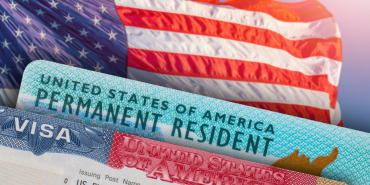9 Major UK Visit Visa Changes in 2025

The United Kingdom has implemented a series of significant reforms to its visit visa system, effective from 2025.
Aimed at modernising border management and enhancing the experience for millions of annual visitors, the changes prioritise streamlined applications, enhanced security protocols, and improved financial assessment transparency.
The Home Office's overhaul targets bureaucratic obstacles by simplifying documentation requirements across key visitor categories, including tourism, family visits, and business travel.
Exhaustive financial or travel histories are now only requested when risk indicators are present, a change anticipated to expedite processing times and diminish administrative burdens. Visa validity periods have been restructured to afford greater flexibility.
Depending on travel history and purpose, visas can now be issued for periods ranging from six months to two years. This tiered approach accommodates both occasional tourists and frequent business travellers, permitting more tailored entry permissions.
Accompanying these adjustments is an increase in the standard visitor visa fee to £100. The rise purportedly reflects administrative updates and the government’s investment in upgraded infrastructure, including enhanced biometric systems. Heightened biometric data collection forms a cornerstone of the revised application process, designed to bolster identity verification and mitigate fraud risks, aligning with global trends in border security and digital identity management.
Processing times have improved, with the majority of applications now resolved within 15 working days. Authorities advise early submission, particularly during peak travel seasons. The revamped online application portal aids efficiency, featuring intuitive navigation, streamlined document uploads, and automatic translation tools for non-English submissions.
Proof of return is subject to more rigorous scrutiny under the new rules. Applicants are now required to present stronger evidence of their intention to leave the UK after their visit. Accepted forms of proof include employment letters, property ownership documents, and evidence of family commitments.
Financial transparency is also central to the reforms. Visa officers are directed to evaluate income consistency and the origin of deposits, rather than simply static bank balances, to assess applicants’ ability to financially support themselves during their stay.
The integration of the Electronic Travel Authorisation (ETA) system with visa assessments marks a significant step in the UK’s immigration strategy. Coordinating entry permissions across platforms enhances security checks while simultaneously facilitating smoother border crossings for legitimate travellers. These reforms have potentially significant consequences for countries with high visa demand.








Add new comment